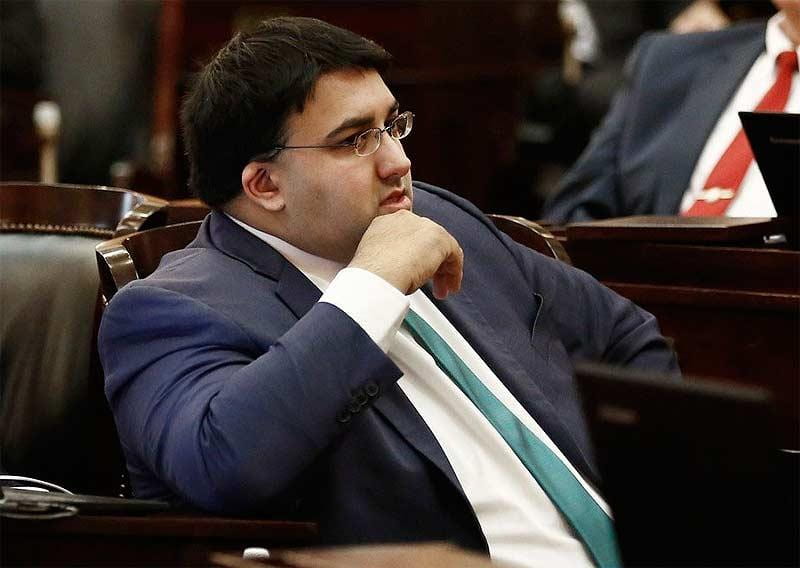
Ohio State Sen. Niraj Antani (R-Miamisburg) announced Monday that he will introduce legislation that would allow college athletes to make a profit off of their name, image and likeness. Credit: Columbus Dispatch file photo via TNS
As legislation concerning Name, Image and Likeness for college athletes continues to emerge across the country, Ohio is getting in on the action.
Ohio State Sen. Niraj Antani (R-Miamisburg) announced Monday that he will introduce legislation that would allow college athletes to make a profit off of their name, image and likeness. With this bill, Ohio would become the 17th state to pass legislation towards allowing paying student-athletes for their likeness.
“As a student-athlete who has an inherent right to own their own name, image and likeness, they should be able to do that,” Antani said. “Today is a big step forward for the rights of student-athletes in Ohio. We are seeking to legalize it today with this bill introduction, but we are doing it in a reasonable and safe manner.”
If the bill passes, student athletes will have the opportunity to earn money through sponsorships and endorsements among other sources without fear of penalty from the NCAA.
The bill would require student athletes to disclose information of their contract deals to their university at least 15 days before they sign an agreement. There would be no centralized disclosing database, rather each instance will be handled by the athlete’s individual institution.
Student athletes would be prohibited from earning money from deals that involve alcohol, marijuana or gambling. Antani said Ohio law limits these activities to people aged 21 years or older, which many student athletes are not.
“I think we should seek to do this in a reasonable and safe manner,” Antani said. “I don’t see any reason why they would sort of need to engage in those categories and while there are some [student-athletes] above 21, there are many who are not, and so to simplify the process, we restricted it.”
Under the proposed legislation, student athletes would also have the option to hire professional representation or negotiate endorsement contracts on their own.
Antani said he’s confident that the bill will be voted on and implemented by its effective date of July 1, 2021.
With hopes that the bill will pass, Ohio State athletic director Gene Smith said the athletic department will put educational services in place to help student athletes navigate potential business deals.
“We will spend the month of June educating our student athletes, all of our stakeholders, on the proper way to engage NIL,” Smith said. “We’ll have to teach them — a lot of them — things in order to ensure that they do this the proper way.”
The proposal comes a month-and-a-half before the NCAA is expected to vote on its own guidelines surrounding NIL June 22.
The push for NIL legislation began in September 2019 when the state of California introduced the “Fair Pay to Play” act which allowed college athletes to begin profiting off of their name, image or likeness beginning in 2023.
“It was always something I had thought about, but frankly, what changed it for me was California. Once California passed their legislation, I really started taking a hard look at it,” Antani said. “Things take time in legislature — things take a lot of time — and so that’s why we are here today. While one-third of states do have it, we’ll still be, I think, in that cutting-edge category.”


